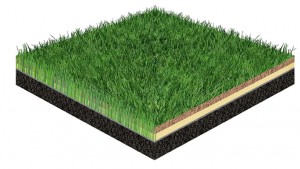World football governing body FIFA has signed up Bristol-headquartered environmental consultancy Eunomia with the goal of ensuring that artificial pitches are as ‘green’ as possible.
Eunomia, which works with governments, local authorities and blue-chip businesses around the world, is to investigate the different types of materials used in artificial turf across the globe and assess their environmental impact. 
The consultancy’s research will then shape recommendations on how to make sure that future pitches score highly when it comes to sustainability, including disposing of them when they are worn out or unusable.
Artificial pitches are becoming more popular across the world – and are now a far cry from the ‘plastic pitches’ used by the likes of Queens Park Rangers and Luton Town in the 1980s with their notoriously unreliable playing surfaces and irregular bounce. Such pitches were later banned from English clubs.
This season’s FA Cup ‘giant killers’ National League side Sutton United host Arsenal on Monday in the fifth round at their Gander Green Lane ground, which boasts a modern, synthetic 3G surface.
However, despite praise for its ‘playability’ from professionals and pundits, no Premiership or Football League club has yet replaced their traditional grass pitch with modern artificial turf.
Eunomia will also explore the issue of plastic pollution from artificial turf as part of its project with FIFA in the light of evidence that infill material – and to a certain extent the ‘grass’ fibre – are adding to river and sea pollution.
Tiny plastic fragments used in the pitches can make their way into the marine environment via rainwater runoff into rivers and sewers.
A recent study in Norway claimed around 3,000 tonnes of plastic fragments a year came from the country alone. 
Eunomia consultant and project manager Simon Hann, pictured, said: “Artificial turf is increasing in popularity throughout the world and it encouraging to see that FIFA is looking to get to grips with some of the important environmental issues associated with it.
“We know that the end of life is of particular concern for this growing waste stream and we will be looking to help FIFA to understand the best practice for managing this.”
Eunomia’s overview will shape recommendations to be set out in a step-by-step guide which will become part of FIFA’s Football for the Planet report – a best practice programme launched to mitigate the negative impact of the organisation’s activities on the environment.
Eunomia was set up in Bristol in 2001 and has grown to have more than 70 employees in its offices in Bristol, London, Manchester, Brussels and Auckland.






























